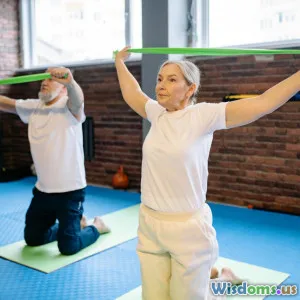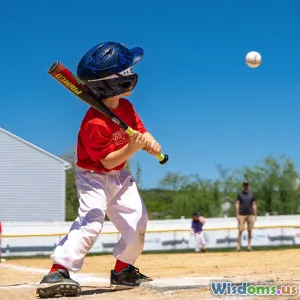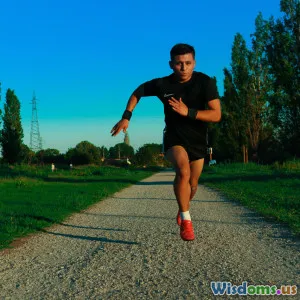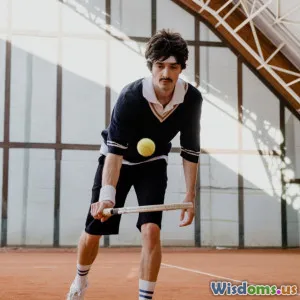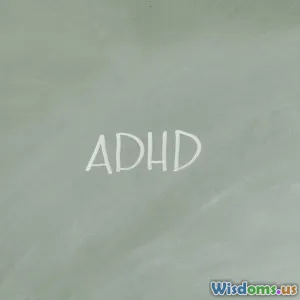
Top Five Sports That Offer the Best Brain Benefits for Aging Adults
8 min read Discover the top five sports that boost brain health and cognitive function in aging adults, backed by science and real-world insights. (0 Reviews)
Top Five Sports That Offer the Best Brain Benefits for Aging Adults
As we age, preserving and enhancing brain health becomes a crucial goal for maintaining quality of life. Cognitive decline is often perceived as inevitable, but recent research highlights that engaging in certain sports can significantly bolster brain function, supporting memory, executive processing, and mental agility. If you've ever wondered how moving your body could sharpen your mind, this article provides an enlightening journey through the top five sports scientifically proven to benefit aging adults' brains.
Why Brain Health Matters for Aging Adults
The human brain exhibits remarkable plasticity throughout life, adapting through experiences and activities. However, aging is associated with changes in brain structure like reduced volume, slower processing, and decreased connectivity, leading to memory lapses and diminished cognitive performance. Conditions such as mild cognitive impairment (MCI) and dementia become more prevalent with age.
Engaging in physical and mentally stimulating activities not only counters these declines but actively promotes neurogenesis—the growth of new brain cells—and strengthens neural networks. The right sports combine physical exertion, coordination, and cognitive challenges, offering a powerful blend to protect and grow brain function.
1. Tennis: The Sport of Quick Thinking and Coordination
Tennis is much more than a racquet sport; it's a brain workout wrapped in physical intensity.
Cognitive Benefits:
- Executive Function & Decision Making: Tennis players must constantly anticipate their opponents' moves, decide on shot selection within seconds, and execute strategies, nurturing rapid information processing and problem-solving.
- Motor Coordination: The hand-eye coordination demand enhances sensorimotor integration.
- Social Interaction: Playing doubles encourages social bonding, linked to mental health improvements.
Evidence:
A 2017 study published in Frontiers in Aging Neuroscience highlighted that regular tennis playing among older adults aged 60+ helped maintain gray matter volume in brain areas related to memory and motor skills. Tennis's combination of aerobic and anaerobic activity amplifies brain-derived neurotrophic factor (BDNF), a molecule promoting brain cell growth.
Real-World Insight:
Thomas, a 68-year-old retiree, credits tennis for maintaining his mental sharpness and quick reflexes. "My weekly matches keep my mind as active as my body," he shares.
2. Swimming: The Rhythmic Brain-Booster
Swimming is a low-impact sport ideal for seniors with joint concerns, but its benefits extend far into the realm of cognitive health.
Cognitive Benefits:
- Aerobic Conditioning: Boosts oxygen flow to the brain, enhancing memory and executive function.
- Bilateral Coordination: Coordinating arms and legs in rhythm strengthens neural pathways.
- Mood Enhancement: Regular swimming reduces stress and depression, which are risk factors for cognitive decline.
Data:
Research from the Journal of Alzheimer's Disease notes that seniors participating in consistent aquatic exercise experienced improved cognitive scores on memory and processing speed within six months.
Example:
Mary, 72, found swimming a gateway from feeling isolated post-retirement to gaining mental clarity and reduced anxiety.
3. Pickleball: The Emerging Favorite for Mental Agility
Pickleball, a blend of tennis, badminton, and ping-pong, is rapidly growing in popularity among older adults for good reason.
Cognitive Benefits:
- Fast Reflexes: The smaller court and fast-paced rallies require quick thinking and reaction times.
- Strategic Play: Like chess in motion, players develop tactical thinking.
- Community Engagement: Social play stimulates emotional health, indirectly supporting cognition.
Insights:
A 2021 survey of older pickleball players found enhanced visual attention and hand-eye coordination after regular play. The sport's friendly pace encourages consistent participation—a key for ongoing brain benefits.
4. Dancing: The Artful Workout for Memory and Focus
Though sometimes overlooked, dancing is a powerful brain exercise combining mental, physical, emotional, and social elements.
Cognitive Benefits:
- Memory: Learning choreography strengthens the hippocampus, critical for memory.
- Multi-Tasking: Moving to rhythm while remembering steps challenges coordination and brain circuit complexity.
- Emotional Wellness: Dopamine release during dance uplifts mood, promoting neuroplasticity.
Studies:
A landmark study published in New England Journal of Medicine showed that dancing reduced dementia risk by 76%, outperforming other leisure activities.
Anecdote:
Linda, aged 75, credits weekly salsa classes not only for her joy but also for her ability to learn new things and maintain sharp memory.
5. Golf: Combining Strategy, Walking, and Social Interaction
Golf offers a unique combination of walking, precision, strategy, and socialization—all beneficial for the aging brain.
Cognitive Benefits:
- Planning & Visualization: Each shot demands calculated decisions, using spatial reasoning.
- Steady Physical Activity: A round involves walking 5-6 miles, increasing cardiovascular health.
- Stress Reduction: The serene environment and social play ease stress hormones detrimental to brain cells.
Research:
A study by the University of Illinois found golfers scored higher on processing speed and sustained attention tests than non-golfers in the same age group.
Experience:
John, a 70-year-old golfer, notes improvement in mindfulness and mental alertness as key benefits.
Conclusion: Activating the Mind Through Movement and Strategy
Combining physical movement with cognitive engagement is key to preserving brain health in older adulthood. The top five sports highlighted—tennis, swimming, pickleball, dancing, and golf—not only improve cardiovascular fitness but also challenge the mind through coordination, strategy, memory, and social interaction.
Taking up these activities fosters neuroplasticity, improves mood, and slows cognitive decline.
Actionable Takeaway: If you're looking to boost your brain health as you age, consider incorporating one or more of these sports into your routine. Beyond the physical benefits, they offer joyful, social experiences that nurture your mind and soul.
Remember, the best sport is the one you enjoy and will continue to play. Your brain will thank you for it!
References:
- Voss, M.W., Nagamatsu, L.S., Liu-Ambrose, T., & Kramer, A.F. (2011). Exercise, Brain, and Cognition Across the Lifespan. Journal of Applied Physiology.
- Verghese, J., Lipton, R.B., Katz, M.J., et al. (2003). Leisure activities and the risk of dementia in the elderly. New England Journal of Medicine.
- Müller, P., Steinhagen-Thiessen, E., & Manuguerra, M.L. (2017). Tennis and Brain: Effects on Gray Matter Volume. Frontiers in Aging Neuroscience.
Empower your brain through sport, and embrace aging with vitality!
Rate the Post
User Reviews
Popular Posts











